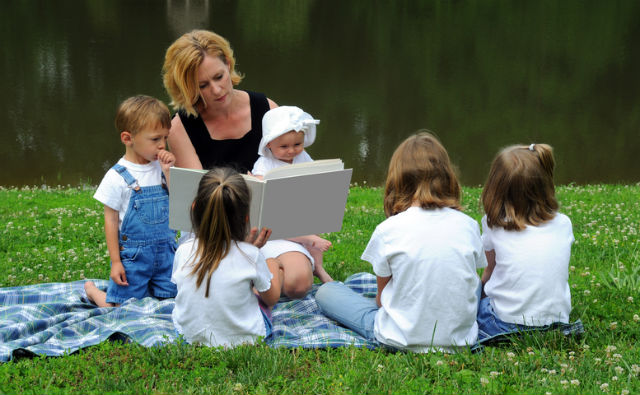How to get your children reading beyond the classroom
Encouraging children to read means bringing texts to life for them, and getting books out of the classroom

Literature has always inspired children's minds, and hopefully stimulated their imaginations so most parents are keen to encourage reading beyond classroom set texts. Reading should not be a chore, like homework. Instead, it should be an explorative journey that encourages them to fall into a world of adventure.
In a classic classroom situation, children are often told what to read and how best to comprehend it. Literature is analysed uniformly as a class for the purpose of passing an exam. While of course encouraging good practise, this can also make the education system somewhat motorised. Children need to think for themselves outside the classroom, and it helps if they’re encouraged take an imaginative and impulsive approach to reading.
Here are our tips to encourage children to get reading:
Lottery reading
Read a book that you know absolutely nothing about. Think of literature as a game of luck. Ask your child to close their eyes, run their finger along a large bookshelf and haphazardly pluck a book by chance. Even if it looks like the dullest book in the world, they still must persevere with the first chapter.
Write and illustrate your own book
Children should explore literature from another perspective – that of the writer. You could begin by providing them with a location and three characters. The aim is to propel these elements into a story with a beginning, a middle and an end. They could draw pictures to go with the story; use glue, scissors and glitter to bring the characters to life.
Read with expression
Most children love drama and acting out stories, particularly at home. One of the best ways to bring a novel to life is to act out various scenes using costume, props and varying intonations. It is important that the lines are read with great expression to further animate the personalities of each character – this is a great way of bringing texts to life and taking on their own lives in little imaginations.
Tea party with your favourite character
Ask your child to make a list of five questions that they would like to ask one of their favourite characters. Then host a tea party and you can take it in turns to ask questions of a volunteer playing the part of the character concerned.
Exquisite houses, the beauty of Nature, and how to get the most from your life, straight to your inbox.
Turn your favourite book into a news article
Children relish a quest or a murder mystery. Why not transform their favourite book into a news article? Deliver your newspaper to a family member: do they believe it? How convincing was the writing?
All of the above techniques will suit different children in various ways and all of these games can be adapted to suit various ages, personalities and groups, but the most important thing is that they’re having fun and genuinely responding to the stories they are interacting with. It is these which they will remember most fondly when they look back from adulthood and will likely inform their tastes for the rest of their lives.